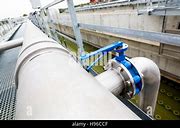Purified recycled drinking water is becoming an essential resource in numerous cities worldwide, addressing the growing demand for clean and sustainable water sources. This innovative approach not only helps in conserving freshwater supplies but also offers a reliable solution to combat water scarcity issues.
Imagine this: the water you flush down your drain goes through a sophisticated treatment process, removing impurities and contaminants to meet stringent safety standards. Through advanced technologies like reverse osmosis and ultraviolet disinfection, wastewater is transformed into high-quality drinking water that is safe for consumption.
In Sydney, Australia, where the importance of water sustainability is increasingly recognized, discussions are underway on implementing a similar system of recycling wastewater for potable use. Experts believe that embracing recycled drinking water can significantly reduce the strain on traditional water sources while providing a sustainable alternative to meet the city’s burgeoning water needs.
One key aspect of this process involves public perception and acceptance. While some may initially have reservations about drinking recycled wastewater, scientific evidence overwhelmingly supports its safety and effectiveness. As one expert explains,
“The purification methods employed in treating wastewater are highly advanced and proven to produce clean, safe drinking water.”
Moreover, educating the public about the rigorous testing and monitoring protocols involved in producing recycled drinking water is crucial in building trust and confidence among consumers. By transparently sharing information about the treatment processes and quality control measures implemented, authorities can alleviate any concerns regarding the safety of recycled water.
The journey from sewage treatment to producing potable reclaimed water involves multiple stages of filtration and disinfection to ensure optimal purity levels. Advanced filtration techniques remove particles, bacteria, and other contaminants from the treated wastewater before subjecting it to thorough disinfection processes that eliminate any remaining microbes.
Experts emphasize that recycled drinking water undergoes far more rigorous testing than many traditional water sources.
Stringent monitoring ensures that every drop meets or exceeds established regulatory standards before being distributed to consumers. This meticulous approach guarantees that recycled drinking water is as safe – if not safer – than conventional tap water.
As cities worldwide grapple with increasing population pressures and environmental challenges, recycling wastewater for potable use emerges as a practical solution towards achieving long-term sustainability goals. By harnessing technology and innovation in wastewater treatment processes, communities can effectively manage their precious water resources while safeguarding public health.
In conclusion, transforming wastewater into purified drinking water represents a significant step towards ensuring a resilient and sustainable future for urban centers facing escalating demands on their limited freshwater reserves. Embracing these innovative solutions not only addresses immediate resource challenges but also sets a precedent for responsible environmental stewardship in an ever-changing world.









Leave feedback about this